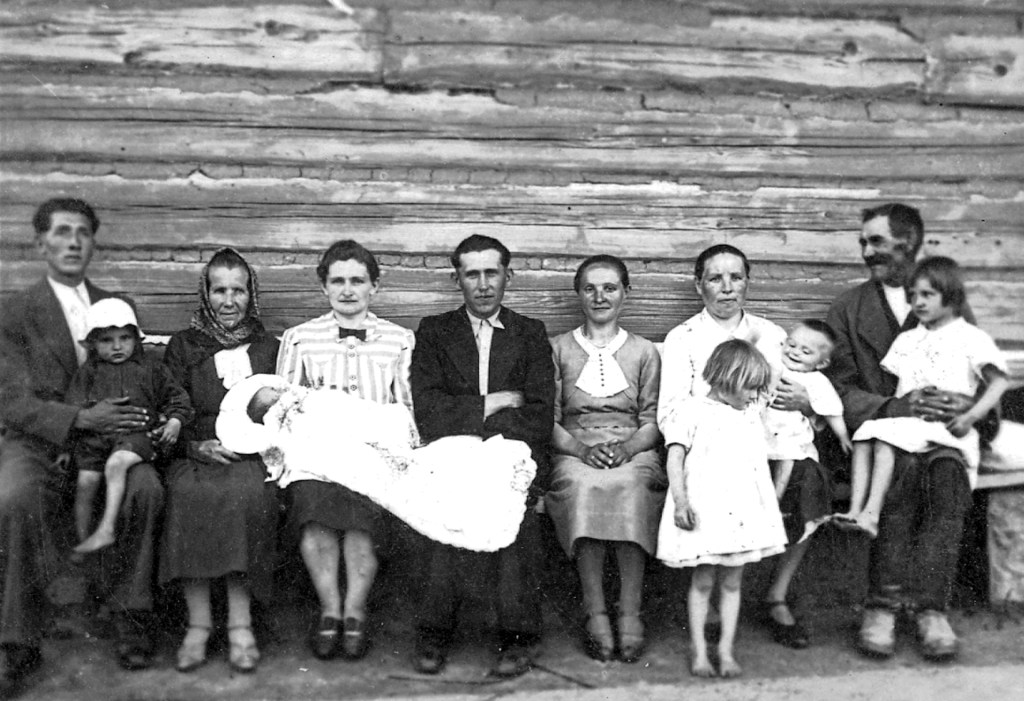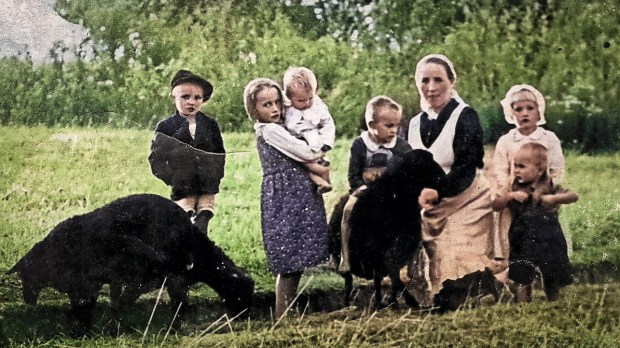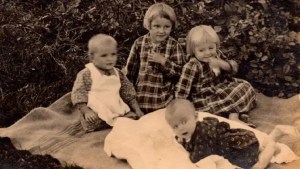Note: A version of this article was originally published by the Polish Bishops’ Conference news service, KAI. Aleteia has updated and adapted it for publication on our website in the light of the Vatican’s latest note on the subject.
Victoria and Joseph Ulma and their seven children will be beatified on September 10 in their hometown of Markowa in Poland. The entire family was executed by the Nazis on March 24, 1944, for hiding Jews. The youngest child was born prematurely during the execution of the family and was not baptized before death.
On September 5, 2023, the Dicastery for the Causes of the Saints issued a note saying that the child received “baptism of blood” through his martyrdom along with his siblings and parents.
For more light on this subject we can turn to Fr. Tadeusz Praskiewicz OCD, PhD, a relator of the Dicastery for the Causes of Saints in Rome. In comments on this case he published in December of 2022, he refers to the theological principles of baptism of blood and baptism of desire, as well as a conciliar dogmatic constitution.
God is not bound
First, let’s review the key facts stated in the Vatican’s note. At the time of her execution, Victoria Ulma was at a late stage of pregnancy. The youngest child was born prematurely during the act of martyrdom itself. There was no way for the family to baptize the child.
For some, this makes the beatification problematic because according to the understanding held for centuries, the unbaptized cannot receive the Beatific Vision, as Fr. Praskiewicz notes on the website of the Information Service of the Conference of Major Superiors of Male Orders in Poland.
However the Discalced Carmelite further notes that St. Thomas Aquinas, in his “Summa Theologica,” stated, among other things, that “God did not bind His power to the sacraments, so as to be unable to bestow the sacramental effect without conferring the sacrament” (S. Th. III, q. 64, a. 7; cf. III, q. 64, a. 3; III, q. 66, a. 6; III, q. 68, a. 2). According to Fr. Praskiewicz, this truth is expressed by the Catechism of the Catholic Church in slightly different words: “God has bound salvation to the sacrament of baptism, but he himself is not bound by his sacraments” (no. 1257).
According to the Carmelite theologian, the theological principles of baptism of blood (as the Vatican has now confirmed) and baptism of desire are well suited to clarify this doubt.
Desire, blood, and grace
“As for the baptism of desire, we can be 100% certain that the Venerable Parents certainly desired that their youngest child be baptized, just as they baptized their children born earlier, but they could not do what they wished to do, because before the child was born, they met martyrdom. On the other hand, with regard to the baptism of blood, we are allowed to be convinced that the youngest child of the Ulmas was immersed in it, just as was the case with the Holy Youth of Bethlehem, who did not receive the sacrament of baptism but are venerated in the Church’s liturgy and no one questions that they enjoy a vision of gladness,” he added.
The relator of the Congregation for the Causes of Saints in Rome also cites the teachings of the Second Vatican Council on the universality of salvation. In particular, he cites the Council’s dogmatic constitution Lumen Gentium (No. 16). This text explains the fact that Christ’s saving grace extends to all. Even non-Christian adults who “through no fault of their own do not know the Gospel of Christ or his Church” and who live honestly can achieve eternal salvation.

Applicable to an infant?
“All the more it should be recognized that this truth is verified in relation to an innocent child. This is why the Catechism of the Catholic Church no longer contains the doctrine of the limbo (limbus puerorum).”
“The statements of serious theological bodies regarding the fate of dead or killed (including by abortion) unbaptized children, including the Scientific Council of the Polish Bishops’ Conference (Warsaw, March 20, 2002), and above all the International Theological Commission (conclusions January 19, 2007, approved by Benedict XVI), drawing on the depositum fidei, are imbued with hope about their salvation.”
“After all, in the spirit of biblical anthropology, the superiority of nature redeemed by Christ over nature associated with Adam’s sin must be recognized (cf. Rom. 5:20-21), and the universality of God’s saving will and the universality of the redemption accomplished by Christ in His passion, death, and resurrection must not be limited,” explains the religious.
Life begins at conception
According to Fr. Praskiewicz, by including the youngest child of the Ulmas for beatification along with the parents and siblings, the Church confirms the teaching that human life begins at conception and thus condemns abortion, i.e. the deliberate murder of children in the prenatal period.
“The exclusion of the Ulmas’ youngest child from the beatification could be mistakenly perceived that for the Church, human life counts only from birth, which would have a very negative impact on its teaching on the issue of abortion and could imply the Church’s acquiescence to this terrible sin of infanticide,” he concludes.
On September 10, the beatification of the Ulma Family — the married couple Joseph and Wiktoria and their seven children — will take place in Markowa, in southeastern Poland, where the Ulma family lived. Along with Cardinal Marcello Semeraro, prefect of the Dicastery for the Causes of Saints, the Mass will be concelebrated by nearly 700 priests and more than 60 bishops from Poland and abroad. About 20,000 faithful are likely to attend the celebrations.



